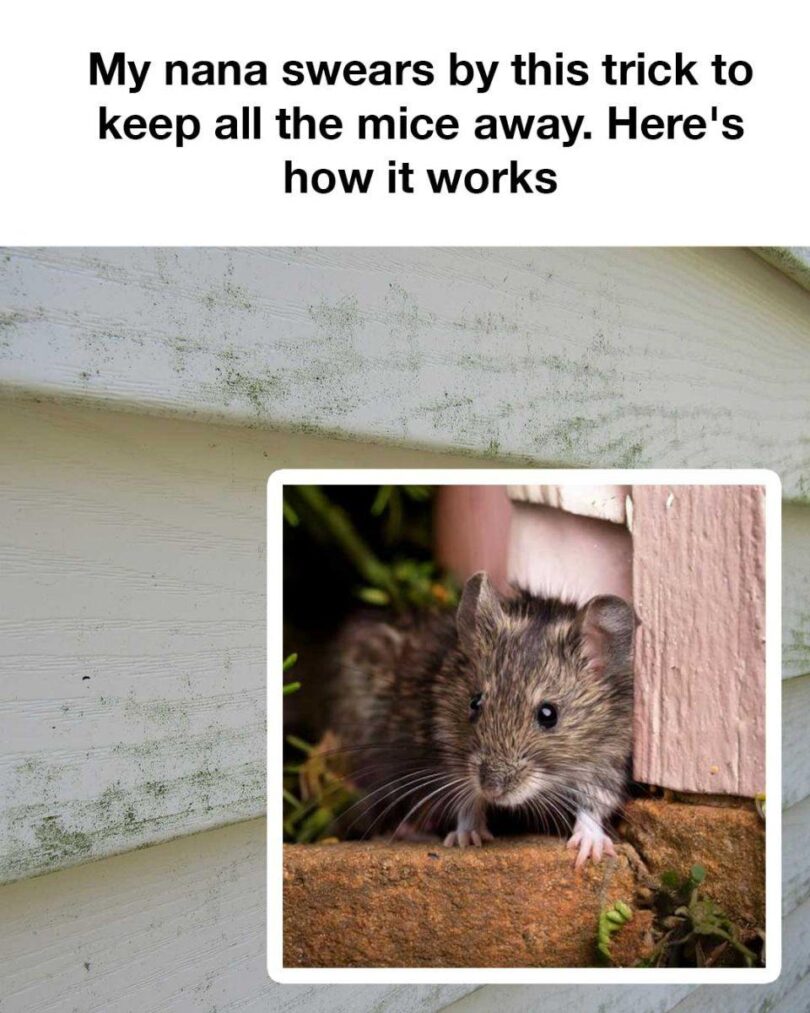In households plagued with the concern of uninvited furry guests, finding a reliable and safe solution can often feel like a daunting task. For generations, my nana has been swearing by a simple, natural trick that she believes wholeheartedly keeps mice at bay: peppermint. Highly aromatic and refreshingly potent, peppermint is not just for festive candy canes or oh-so-soothing teas. According to Nana, this humble herb holds a secret power in the realm of pest control. In this article, we’ll explore how peppermint works, how to use it effectively, and why it might just become your next go-to solution.
Why Peppermint Works as a Natural Deterrent
Peppermint oil is celebrated not only for its refreshing scent and cooling properties but also for its prowess in keeping mice away. The strong smell of peppermint is overwhelming to a mouse’s sensitive olfactory system, deterring them from the area. Unlike synthetic chemicals or traps, using peppermint as a natural deterrent allows for a humane way to repel these creatures without causing them harm. Plus, peppermint offers the added benefit of freshening up your living space with its invigorating scent.
Understanding the Science Behind Peppermint and Mice
At the core of peppermint’s effectiveness is its essential oil, which is extracted through steam distillation of the peppermint plant. This oil contains high levels of menthol, a compound that mice find particularly offensive. When mice encounter the strong scent of peppermint, their natural reaction is to steer clear, as the smell can disrupt their normal behavior patterns and ability to sniff out food. Studies have shown that menthol works by interfering with receptors in a mouse’s nose, making this natural remedy an effective barrier against unwanted rodent visitors.
How to Prepare a Peppermint Solution
To harness the power of peppermint against mice, you can easily prepare a peppermint oil solution. Start by mixing about 10-15 drops of pure peppermint essential oil with a cup of water in a spray bottle. For added potency, some people like to include a few drops of dish soap to help the oil adhere better to surfaces. Shake the mixture well before each use to ensure the oil is evenly distributed throughout. Alternatively, you can soak cotton balls in peppermint oil and place them strategically around your home.
Where to Apply Peppermint for Maximum Effectiveness
To effectively deter mice with peppermint, focus on areas where you’ve noticed signs of rodent activity, such as droppings or gnaw marks. Common hotspots include kitchens, pantries, basements, and attics. Spray the peppermint solution along baseboards, in corners, and near entry points such as doors, windows, and vents. Refresh the application every few days, or whenever the scent begins to fade. For a more concentrated approach, place peppermint-soaked cotton balls in confined spaces like cupboards or under sinks.
Additional Tips for Using Peppermint Against Mice
For optimal results, combine peppermint use with general cleanliness and home maintenance to create an inhospitable environment for mice. Seal food in airtight containers, repair holes and cracks in walls, and eliminate clutter where mice could hide. Using peppermint in conjunction with these preventative measures will enhance its effectiveness. Additionally, consider rotating peppermint oil with other essential oils like eucalyptus or citronella to prevent mice from growing accustomed to the scent.
Common Misconceptions About Peppermint as a Pest Control
see next Page
ADVERTISEMENT







